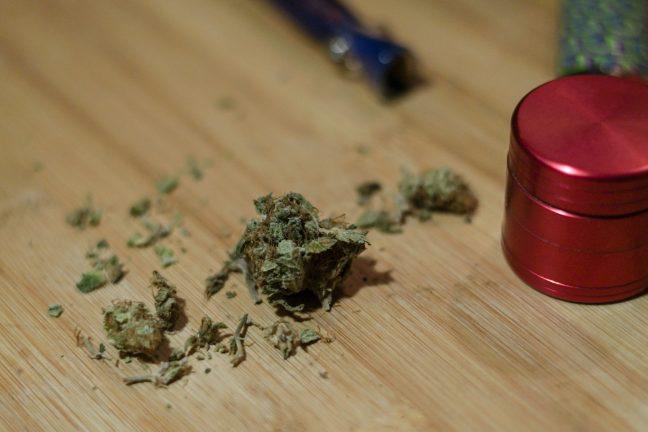Governor Tony Evers proposed legalizing recreational marijuana in his 2021-2023 budget and plans to expand the legality of medical cannabis.
Evers proposed decriminalization of small amounts of marijuana back in 2018. But his idea was shut down by Republicans in the legislature.
According to Channel 3000 News, taxes on marijuana purchases would generate over $165 million dollars of government revenue. Gov. Evers plans to allocate about half of this revenue to a Community Reinvestment Fund.
Under Evers’ budget plan, $34 million dollars would be invested into rural school districts. State Senator Melissa Agard (D-Madison) said Wisconsin schools were especially stressed for the past 10 years and recently, rural schools have started to close.
According to a WPR article, Evers said legalizing marijuana will cut costs in the criminal justice system. He also intends to allocate $80 million towards an equity fund to invest in low-income communities.
While Assembly Speaker Robin Vos, a Republican, is in favor of legalizing marijuana, he does not support including the item in the state budget, according to WPR.
Gov. Evers pushes forward with marijuana legalization plan despite Republican opposition
The National Organization for the Reform of Marijuana Laws gave Vos a D- rating on their Smoke the Vote website. NORML said, “He gives false hopes to the sick, dying and disabled of Wisconsin by saying he ‘supports medical marijuana.’ Rep. Vos has offered little more than stall tactics in even the basic steps of medical marijuana reform.”
Though, many other Republican lawmakers support looser marijuana laws. In an interview, State Representative Mary Felzkowski explained her support for legalized medical marijuana. She introduced a bill in 2019 legalizing certain forms of cannabis for medical use.
State Senator Patrick Testin (R-24), said he believes doctors should determine whether or not a patient needs medical marijuana, citing the positive effect medical cannabis had on his grandfather, who was fighting bone and lung cancer.
According to an article from the Wisconsin Watch, Senator Testin led the charge to legalize hemp agriculture, which may be a necessary step towards a legal cannabis industry in the state.
Testin said he is unsure as whether or not Wisconsin should legalize recreational marijuana.
“We just need more data,” Testin said. “I’ve heard from some of my colleagues in other states, from places like Kansas and Nebraska, where they’ve seen unintended consequences from increasing DUIs.”
Gov. Evers’ proposal to allow local municipalities to increase sales tax
According to a poll by Marquette University Law School, 59% of Wisconsin residents supported the legalization of recreational marijuana and 36% were against it in 2019.
Senator Agard commented on the widespread support for marijuana legalization, noting Wisconsinites’ support the measure on both sides of the aisle.
“Since the governor sent his proposal out on Sunday, my office has received hundreds of contacts from people all across the state of Wisconsin that support this provision” Agard said, “They’re not necessarily people that would vote for me, because I am a Democrat and you know, they are proud Republicans.”
Agard said the illegal status of cannabis contributes heavily to racial disparities in incarceration, because people of color are four to seven times more likely to be arrested for possession of marijuana than white people.
Executive Director of NORML’s Wisconsin Chapter, Alan Robinson, said mass incarceration is largely fueled by non-violent drug offenses.
Furthermore, Robinson said the existing private prison system allows prisons to profit off of Black labor.
“The reallocation of human capital from inner cities to rural areas via the prison industrial complex is a real thing,” he said. “The more that black people have been negatively impacted by this, the more entrenched our lawmakers have gotten in enforcing drug prohibition.”
An article by Pew Research Center showed 76% of millenials support marijuana legalization and support for the measure increases with each subsequent generation.
University of Wisconsin College Democrats member Isaac Owen said a growing wave of approval for drug decriminalization and legalization among young people exists.
“In our lifetime we’ve seen Portland decriminalize all drug offenses,” Owen said, “we’ve seen other countries in Europe decriminalize all drug offenses and we’ve seen positive change there.”
Owen also cited a decrease in incarceration as a positive change as well as increased levels of life satisfaction.
Agard said she has faith marijuana will soon be legalized in Wisconsin.
“It’s been an uphill battle, I’m not gonna deny that, but I do know that upwards of 60% of people in Wisconsin support legalization of cannabis,” Agard said.








